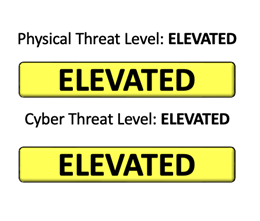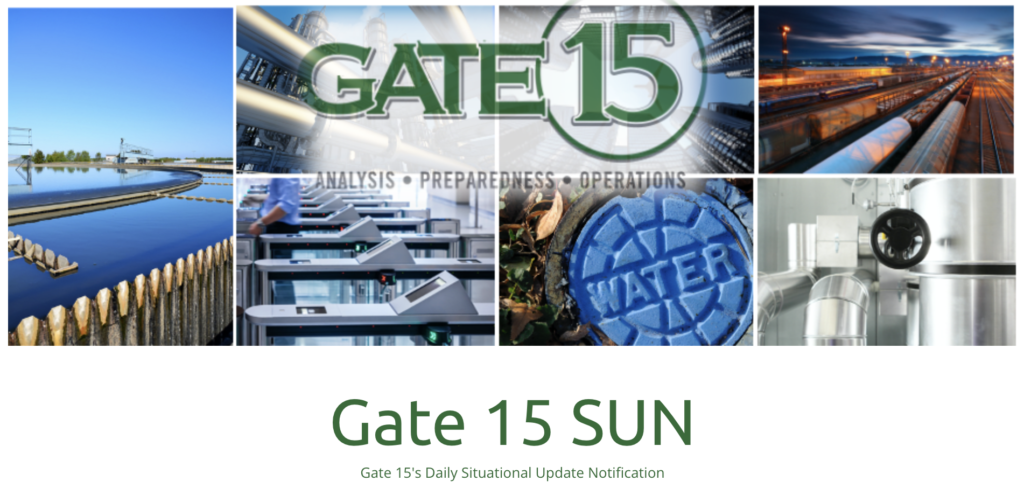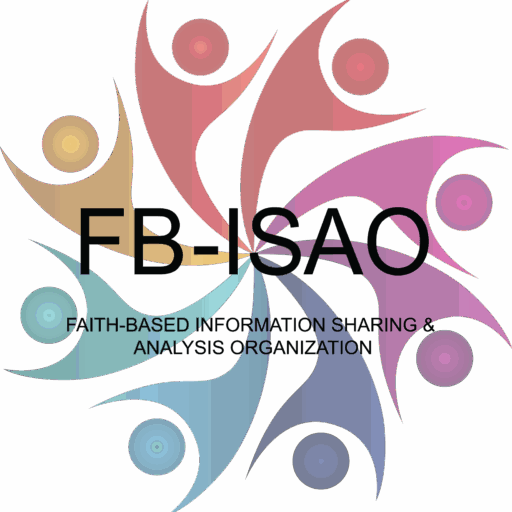Faith-Based Security Headlines
These updates are shared to help raise the situational awareness of Faith-Based organizations to best defend against and mitigate the impacts from all-hazards threats including physical security, cybersecurity, and natural disasters.
Trump vows national emergency in Washington, DC after ICE dispute
President Trump has threatened to declare a national emergency and “federalize” Washington, D.C., after Mayor Muriel Bower said the city’s police would not cooperate with Immigration and Customs Enforcement (ICE). The dispute centers on the provision of information about individuals living in or entering the U.S. illegally. Trump argues that if local police stop cooperating with ICE, crime will surge again. He reassured DC residents and businesses that he would not allow that to happen. Earlier, Trump placed Metropolitan Police Department under federal control and sent in federal law enforcement and ICE into police the streets, although it’s not yet clear when that mission will end.
Analyst Comments: DC is one of several major U.S. cities that has seen, or been threatened with, an increase in Federal law enforcement or National Guard deployments in an effort to curb crime. Response from many has indicated a desire for Federal support to help with crime issues, while ensuring proper coordination is done and cities are not over militarized. “I’ll work with anybody to keep my city safe,” said Justin Bibb, the mayor of Cleveland and chair of the Democratic Mayors Association. “I’ll do it with this administration, but I don’t want the damn National Guard in Cleveland patrolling my streets.”
As these enforcement activities continue, they will likely be met with protest activity, which can have direct and indirect impacts on the local community. Organizations are encouraged to maintain situational awareness, and communicate with within their communities of any local updates.
Key questions remain about Charline Kirk assassination as his memorial is announced. Here’s what we know
In the aftermath of Kirk’s killing, political leaders across the spectrum have become increasingly cautious about public appearances. Several elected officials have postponed or canceled public rallies, town halls, and other in-person political events, citing concerns over safety and security. Some are rethinking how best to balance public engagement with protection, given the recent rise in politically motivated violence.
FBI Director Kash Patel, who was appointed less than a year ago, is facing criticism from conservatives and from within the bureau itself over his handling of the investigation. Some right-wing influencers, and even officials, argue that he made errors, most notably prematurely indicating a suspect was in custody before that turned out to be incorrect. Critics also say that Patel has struggled with internal management, morale, and with balancing his public image against investigative discretion.
The killing has sharpened broader concerns about political violence becoming normalized in U.S. civic life. Officials say the threat environment changed: not only are there more threats, but the expectations and norms around public engagement are changing accordingly. Some policymakers are calling for revising security protocols for politicians and public events, while warning that over-security risks undermining openness and democratic engagement.
Analyst Comments: The assassination of Charlie Kirk illustrates both the increasingly volatile political climate in the US and the ease with which lone actors can exploit vulnerabilities at public events. Recent reporting notes that political figures across the spectrum are reassessing the risks of in-person appearances, with some canceling or postponing events in response to heightened safety concerns. HOWs and other community organizations are encouraged to evaluate risks not only based on crowd size and public visibility but also in relation to the political and cultural exposure of their leadership. Organizations may also wish to review personal protection strategies for senior leaders who have taken strong positions on contentious issues, as these can increase their profile as potential targets.
Potential tropical development in Gulf poses primary US threat before end of September
Meteorologists are increasingly concerned about potential tropical development in the Gulf of Mexico over the next couple of weeks, especially from about September 18 through the end of the month. Warm waters, the depth of that warmth, favorable steering currents, and easing atmospheric constraints are combining to make the Gulf the most likely area for storms to form, rather than farther east in the Atlantic. If a system does develop in the Gulf, it may give costal U.S. areas very little lead time, potentially as little as two days for a Gulf-based system to reach land. By contrast, a storm forming in the northwestern Caribbean might offer three to five days of warning. Conditions are becoming more supportive of tropical activity, with less disruptive wind shear, dry air, and Saharan dust.
Analyst Comments: The Gulf of Mexico remains one of the most concerning regions for late-season tropical development due to its consistently warm waters and proximity to U.S. coastlines. The limited lead time between storm formation and landfall presents a significant preparedness challenge for emergency managers and costal communities. Even a weaker tropical system can bring heavy rain, localized flooding, and strong winds. Organizations and household in hurricane-prone regions should treat this period as a heightened readiness window, reviewing evacuation plans, testing communication systems, and confirming supply stockpiles. The potential for “fast-developing” storms shows the importance of monitoring official forecasts daily, as conditions in the Gulf can change rapidly with little warning.
Get the Daily Awareness Post Delivered to your Email!
More Faith-Based Stories
San Diego pastor fatally shot in his home; congregation left in disbelief
Ashe County Church destroyed by fire on Sunday
Faith, politics and armed resistance: A Palestinian-Christian perspective
House of Prayer church leaders indicted for alleged $22 M fraud scheme targeting military vets
Canada: 2 Halifax, N.S. synagogues vandalized overnight, rabbi calls it ‘escalation’ of antisemitism
House of Prayer church leaders indicted for alleged $22 M fraud scheme targeting military vets
A $4B Security Industry has Risen Around School Shootings
What we know about Trump’s push to send the National Guard to Memphis
Charlie Kirk shooting suspect not cooperating with authorities, Utah governor says
Kirk Shooting Suspect Held “Leftist Ideology”, Utah Governor Says
U.S. says it will press ahead with TikTok ban if China doesn’t drop tariff, tech demands
Israel threatens Hamas ‘wherever they are’ as Qatar hosts summit
UK summons Russian ambassador over NATO airspace violations
Final stage of Spain’s Vuelta cycling race suspended following pro-Palestinian protests
More Security-focused Content






